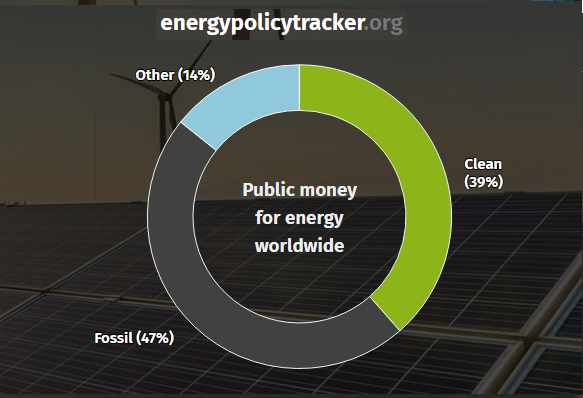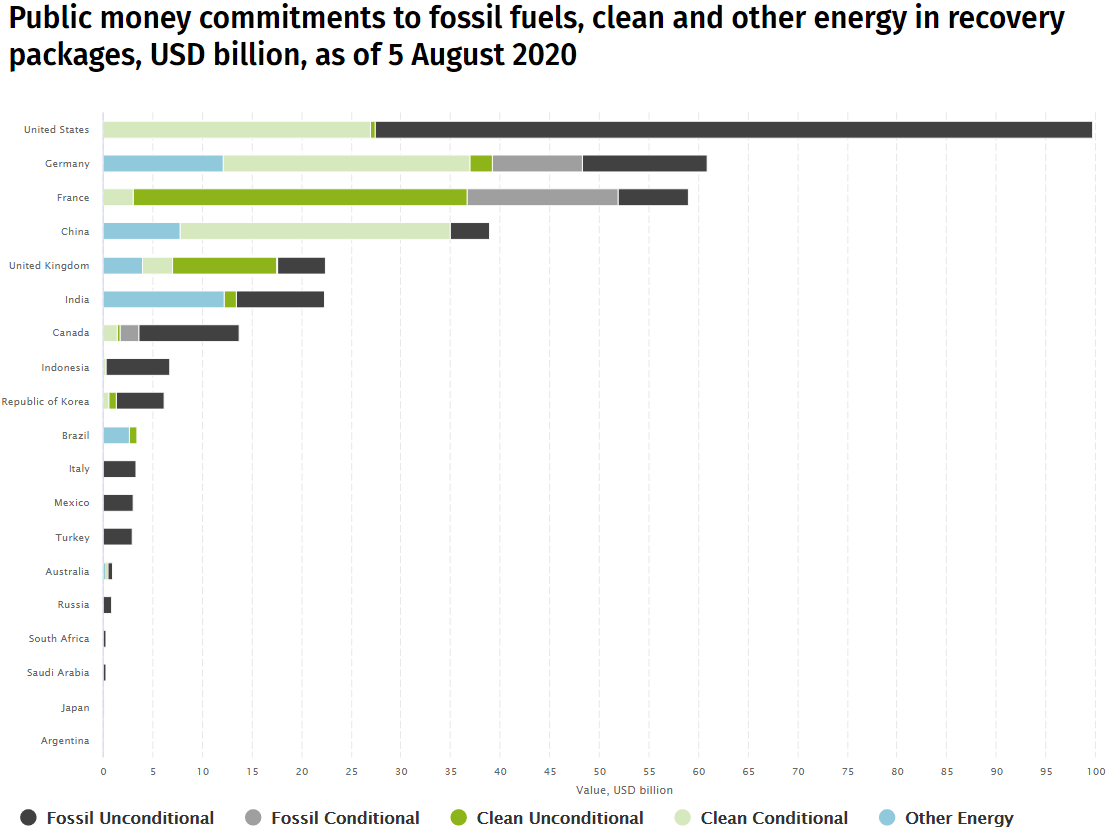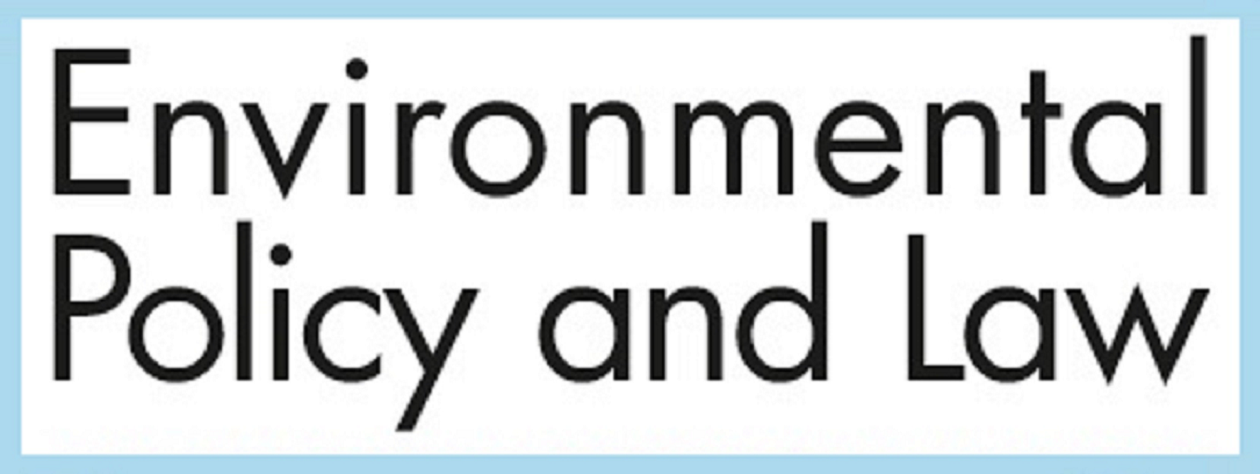
[Posted by: Carmel McNamara, IOS Press]
Winnipeg, MB, Canada – Data made public today on EnergyPolicyTracker.org, a new website tracking climate- and energy-related recovery policies, shows a total commitment of at least USD 151 billion from G20 governments in support of fossil fuels. Of them, only 20% make financial support conditional on green requirements, such as setting climate targets or implementing pollution reduction plans. At the same time, USD 89 billion has been committed to clean energy but 81% of this support is unspecific about the appropriate environmental safeguards.

New website: EnergyPolicyTracker.org
The Energy Policy Tracker provides information about public funding commitments and other government policies related to the production and consumption of energy in the G20 countries since the beginning of the pandemic – with weekly updates. While rhetoric about the need for a green recovery has grown louder in the policy space, this data shows that, in reality, fossil fuel producers and high-carbon sectors, such as airlines, are currently receiving 70% more recovery aid than the clean energy.
"The COVID-19 crisis and governments’ responses to it are intensifying the trends that existed before the pandemic struck,” says Dr. Ivetta Gerasimchuk, IISD expert and the Energy Policy Tracker project lead. “National and subnational jurisdictions that heavily subsidized the production and consumption of fossil fuels in previous years have once again thrown lifelines to oil, gas, coal, and fossil fuel-powered electricity. Meanwhile, economies that had already begun a transition to clean energy are now using stimulus and recovery packages to make this happen even faster.”
The Energy Policy Tracker registered over 200 individual policies from G20 countries, combining the amounts committed through each policy to generate total aggregate figures. To provide a detailed, real-world picture of the current state of support for different energy types, the data for both fossil fuels and clean energy is split into sub-categories – unconditional and conditional. These categories provided a more nuanced picture on the different levels of government support for a green recovery from the pandemic.
Angela Picciariello, Senior Research Officer at ODI, says: “In spite of the great number of clean policies being approved by governments in recent months, the tracking system shows how the fossil fuel industry has continued to aggressively lobby policy-makers. This has resulted in some so-called conditional fossil fuel policies that nevertheless lock in dangerous emissions for decades to come. Nor is it always easy to distinguish clean from fossil fuel policies – the tracking system is important to identify the policies causing the greatest, and often hidden, environmental damage.”
G20 countries are responsible for around 80% of global greenhouse gas emissions and account for 85% of global GDP. With G20 governments committed to injecting over USD 8 trillion into the global economy, decisions made today about how these funds will be distributed will lock in the world’s environmental footprint for decades to come.
"Under the guise of COVID-19 recovery spending, governments are pouring huge volumes of public money into the struggling fossil fuel industry, wasting an opportunity to fight the climate crisis while enriching big polluters,” says Alex Doukas, a Program Director at OCI. “Recovery spending must dramatically change course to support clean energy as an investment in the future, instead of subsidizing the polluters of the past. Fossil fuels were a bad investment even before the pandemic began."
“The recovery from the coronavirus crisis needs to result in an acceleration of the energy transition,” says Dr. Tom Moerenhout, Professor of International and Public Affairs at Columbia University. “If we miss that opportunity and embark on another fossil fuel-powered economic recovery – as was the case in 2008 – then it is not likely but certain that our planet’s already high fever will turn into heatstroke”
According to the data released today, committed support for clean energy amounted so far to USD 89 billion, but only USD 16 billion has been committed to support unconditionally clean energy such as solar or wind.
"We are happy to see that China, Germany, India, Japan, Republic of Korea, and the U.K. have already approved some green recovery policies that provide lasting and decent green jobs,” says Dr. Satoshi Kojima, Principal Coordinator at the Institute for Global Environmental Strategies (IGES). “Further efforts to mainstream this strategy are desirable."
"Today, governments are doubling down on fossil fuels as they grapple with the pandemic and plan their recoveries, but there is still time to build back better,” says Elisa Arond, Research Fellow at Stockholm Environment Institute (SEI). “Policy-makers and civil society organizations can use the evolving data in this Energy Policy Tracker to help push new recovery policies – and energy policies more broadly – in that direction.”
The results from the Tracker will continue to evolve as more countries are added and weekly updates are made. Only quantifiable policies – those with a specific dollar value attached – are included in the totals, while many energy support policies remain unquantified. Figures representing total public money commitments will continue to evolve over the course of the year and beyond.

###
NOTES FOR EDITORS
To access the Tracker, visit: EnergyPolicyTracker.org. The website will be updated weekly to reflect current climate and energy policy commitments from G20 governments and beyond.
The data is provided by 14 organizations: International Institute for Sustainable Development (IISD), Institute for Global Environmental Strategies (IGES), Oil Change International (OCI), Overseas Development Institute (ODI), Stockholm Environment Institute (SEI), Columbia University in New York City, Forum Ökologisch-Soziale Marktwirtschaft (FÖS), Fundación Ambiente y Recursos Naturales (FARN), Instituto de Estudos Socioeconômicos (INESC), Institute for Climate Economics (I4CE), Instituto Tecnológico Autónomo de México (ITAM), Legambiente, REN21 and The Australia Institute (TAI).
Contact
Ivetta Gerasimchuk, Project Lead at IISD (media@iisd.org or +1 204 958 7700).
About IISD
The International Institute for Sustainable Development (IISD) is an award-winning independent think tank working to create a world where people and the planet thrive. Our mission is to accelerate solutions for a stable climate, sustainable resources, and fair economies. We shine a light on what can be achieved when governments, the private sector, NGOs, and communities come together to share knowledge, commit to change, and build resilience. With offices in Geneva, Ottawa, Toronto and Winnipeg, our research spans the globe. iisd.org
